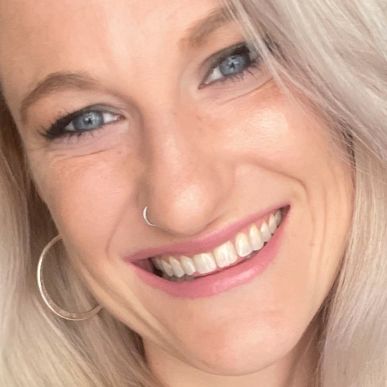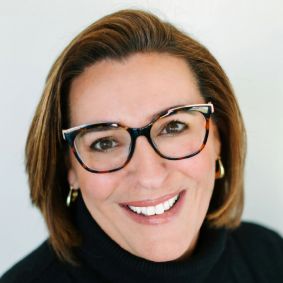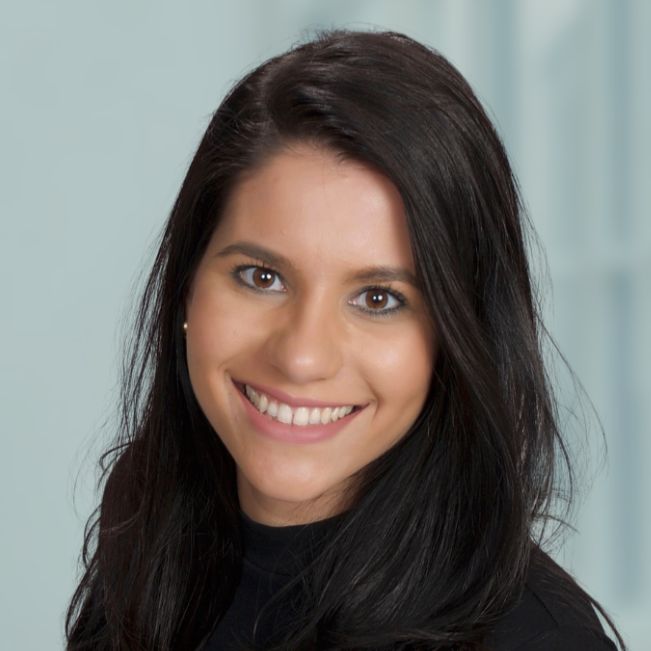How to Get Help for Substance Abuse in Raleigh
If you’re ready to take the first step toward recovery, MiResource makes it simple to find the right therapist for Substance Abuse in Raleigh. Our trusted, easy-to-use directory helps you quickly match with licensed professionals based on your needs, budget, insurance, schedule, and preferences—so getting help feels less overwhelming and more within reach. Explore detailed therapist profiles, see specialties and availability, and connect with providers who understand your goals and your community in Raleigh. Start today: browse, compare, and contact a therapist who fits you—because the sooner you find the right support, the sooner you can move forward.
Finding Licensed Substance Abuse Therapists in Your State
Choosing a substance abuse therapist licensed in your state is essential—telehealth rules and most insurance plans require in‑state licensure for coverage. On MiResource, you can filter providers by active state licensure to quickly find qualified professionals in Raleigh or anywhere in your state. All listed clinicians have verified credentials and are legally authorized to provide care in the jurisdictions shown.
Raleigh’s recovery community reflects the city’s blend of college life (NC State, Shaw, St. Augustine’s, Meredith), tech and state government workers, strong faith traditions, and tight-knit neighborhoods from Southeast Raleigh to North Hills. These cultural anchors can shape how people talk about substance use, who they turn to for help, and comfort with group support. In-person therapy here can feel especially grounding—sessions near Dorothea Dix Park or the NC Museum of Art Park offer restorative green space before or after appointments, while offices along Hillsborough Street, Glenwood Avenue, or in the Village District and North Hills are easy to reach. Plan around rush-hour congestion on I‑40, I‑440, Capital Boulevard, and Wade Avenue; GoRaleigh and GoTriangle routes converge at Moore Square Transit Station, and many clinics offer free surface lots or garage parking (the Village District has plentiful free garages).
For substance use services and crisis support, start with
Wake County
Human Services behavioral health resources and
Alliance Health
(the managed care organization for Wake County). Local, no‑cost recovery support includes
Healing Transitions
in Raleigh at and
UNC Health
’s WakeBrook for crisis, detox, and inpatient/outpatient services at. Peer meetings are easy to find through
Triangle Intergroup
for Alcoholics Anonymous and the
NA
meeting search
.
You can also get statewide referrals and a helpline via the
Alcohol/Drug Council of North Carolina
and professional treatment guidance from
Addiction Professionals of North Carolina
.
What You Need to Know About Substance Abuse
Substance abuse
means using alcohol or drugs in ways that hurt your wellbeing,
relationships
, or responsibilities. It can make daily life in Raleigh feel harder—affecting mood, work or school,
sleep
, and connections with people you care about.
Common Signs and Symptoms of Substance Abuse
It’s normal to have questions or feel unsure. If you or someone you care about in Raleigh may be struggling, these common signs can help you notice what’s going on.
- Changes in mood: irritability,
anxiety
, sudden sadness, or feeling “flat”
- Increased secrecy: hiding activities, lying about where they’ve been or who they’re with
- Loss of interest: pulling away from hobbies, friends, or family
- Sleep problems: staying up very late, sleeping much more or much less than usual
- Appetite and weight changes: eating far more or far less; noticeable weight loss or gain
- Decline at work or school: missed days, slipping performance, warnings from teachers or supervisors
- Risky choices: driving under the influence, unsafe sex, mixing substances, impulsive behavior
- Physical signs: red or glassy eyes, small or enlarged pupils, unexplained nosebleeds, frequent sniffing or cough, tremors, slurred speech, poor coordination
- Neglecting health or hygiene: not showering, wearing the same clothes, ignoring medical needs
- Money problems: borrowing or missing money, selling belongings, unexplained charges
- Legal or disciplinary issues: citations, DUIs, conflicts at school or work
- Tolerance: needing more of a substance to feel the same effect
- Withdrawal symptoms when not using: headaches, shaking, sweating, nausea, trouble sleeping, restlessness, low mood
- Using to cope: relying on alcohol or drugs to relax, sleep, socialize, or manage stress
- Cravings and loss of control: strong urges, using more or longer than planned
- Isolation or new social circles: distancing from longtime friends; spending time with people who also use
- Relationship strain: more arguments, broken trust, sudden changes in boundaries
- Paraphernalia: bottles, vapes, pills without prescriptions, burnt foil, pipes, syringes
If these signs feel familiar, you’re not alone. Support is available in Raleigh, and reaching out—whether for yourself or someone you love—can be a compassionate first step.
Causes and Risk Factors for Substance Abuse
Substance use problems often arise from a mix of factors, including genetics and brain chemistry, mental health challenges like stress, anxiety, or
trauma
, and environmental influences such as peer pressure, easy access to substances, or big life changes. Family history, chronic pain, and untreated depression can increase risk, while community stressors and isolation can make coping harder. In Raleigh, local pressures—like work, school, or financial strain—may also play a role. These issues are multifactorial and treatable; they are not a personal failing.
How Substance Abuse Can Affect Daily Life
Substance use can strain relationships by causing missed plans, broken trust, or more arguments, like forgetting a friend’s birthday or pulling away from family. At work, it may lead to being late, trouble focusing, or mistakes that put a job at risk; in school, it can show up as slipping grades, skipped classes, or lost motivation. Day-to-day routines can feel harder, with sleep, mood, and finances affected, which lowers overall quality of life. If this sounds familiar in Raleigh, know that support is available and change is possible.
Treatment and Support Options for Substance Abuse
Evidence-based treatments include cognitive behavioral therapy, motivational interviewing, contingency management, and family-based approaches; for alcohol and opioid use disorders, medications like naltrexone, acamprosate, disulfiram, buprenorphine, and methadone can reduce cravings and relapse. Care levels range from outpatient counseling and intensive outpatient programs to residential/inpatient treatment, with integrated care for co-occurring mental health conditions. Support systems include mutual-help groups (AA/NA, SMART Recovery, LifeRing), recovery coaching, sober living, and harm-reduction services (naloxone access, syringe programs). Self-help strategies—setting goals, managing triggers, using recovery apps, and building a support network—can complement professional care; to find help, talk to a clinician, visit findtreatment.gov, or call SAMHSA’s National Helpline at 1-800-662-HELP (US).
Frequently Asked Questions
1) What is Substance Abuse and how is it diagnosed?
Substance Abuse means a pattern of using
alcohol
or other drugs in ways that cause problems with health, safety, work, school, or relationships. Diagnosis usually starts with a private conversation and screening, followed by a thorough assessment that looks at symptoms over time and their impact on daily life. Clinicians use standard criteria and may include lab tests or questionnaires to rule out other causes. Licensed professionals such as primary care doctors, psychiatrists, psychologists, and licensed counselors in Raleigh can diagnose and create a care plan.
2) Who is most likely to experience Substance Abuse?
Anyone can experience Substance Abuse, regardless of age, background, or neighborhood in Raleigh. Risk factors include family history, stress, trauma, chronic pain, mental health conditions, and early exposure to substances—but none of these mean it’s your fault. Community pressures, social isolation, and easy access can also play a role. Supportive relationships and timely help make a real difference.
3) How common is Substance Abuse?
Substance Abuse is common, affecting millions of people in the United States each year—many more than most people realize. Estimates suggest that roughly 1 in 10 people will experience a substance-related disorder at some point. Communities in Raleigh see similar patterns, which is why local services are widely available. The good news is that many people recover with the right support.
4) Can Substance Abuse be prevented?
Prevention is possible and happens at many levels, from personal habits to community programs in Raleigh. Building coping skills, staying connected to supportive people, treating mental health concerns early, and practicing safe medication use all help. School and workplace education, reducing access to high-risk substances, and healthy activities also protect against Substance Abuse. If you’re worried, early conversations with a professional can lower risks.
5) What should I do if I think I have Substance Abuse?
Reach out for help as soon as you can—early support makes recovery easier. Use MiResource to find licensed therapists, psychiatrists, and programs in Raleigh that fit your needs, or talk with your primary care provider about next steps. For free, confidential help, you can call the SAMHSA National Helpline at 1-800-662-HELP (4357), or dial 988 if you’re in emotional distress or crisis. If you’re in immediate danger, call 911.
6) How can I talk to others about my Substance Abuse?
Choose a trusted person, pick a calm time, and share only what feels comfortable for you. Use simple “I” statements, like “I’m getting help for Substance Abuse and here’s how you can support me,” and be clear about boundaries. Ask for specific support—rides to appointments, check-ins, or help avoiding triggers—in Raleigh or wherever you spend time. If conversations feel hard, consider bringing a counselor into the discussion or using MiResource to find a support group.













